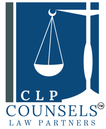Voting in company meetings is a crucial aspect of corporate governance. The Company Act of 1994 outlines essential provisions relating to company meetings, voting procedures, and the rights of shareholders and directors. In this article, we will delve into the basics of voting in company meetings under the Company Act 1994.
How to Cast Vote in a Company Meeting
Directors, as appointed stewards of a company, bear significant responsibilities under the Company Act 1994 and corporate governance standards in Bangladesh.
Their primary duty is to act in the best interests of the company and its shareholders, ensuring prudent decision-making and adherence to legal and ethical standards.
Directors are tasked with overseeing the company’s operations, financial health, and strategic direction. They must exercise due diligence, skill, and care in their roles, actively participating in board meetings and decision-making processes.
This includes ensuring compliance with relevant laws, regulations, and internal policies, and maintaining transparency and accountability to shareholders.
Directors play a crucial role in shareholder relations, representing their interests and facilitating communication between the board and shareholders.
They must ensure that shareholders are properly informed about the company’s performance, strategy, and any matters requiring their input or approval.
Process of Casting Vote in a Company Meeting
This article provides a comprehensive guide on voting in company meetings under the Company Act of 1994. It covers essential aspects such as shareholder and director roles, meeting notices, voting rights, quorum, polls, proxy voting, and equal rights for shareholders.
Additionally, it outlines the procedures and requirements for Annual General Meetings (AGMs) and Extraordinary General Meetings (EGMs).
The article also discusses the voting process, penalties for non-compliance, and court intervention, and offers legal advice on voting conflicts through Counsels Law Partners (CLP) in Bangladesh, providing contact details for assistance.
Directors, as appointed stewards of a company, bear significant responsibilities under the Company Act 1994 and corporate governance standards in Bangladesh.
Their primary duty is to act in the best interests of the company and its shareholders, ensuring prudent decision-making and adherence to legal and ethical standards.
Directors are tasked with overseeing the company’s operations, financial health, and strategic direction. They must exercise due diligence, skill, and care in their roles, actively participating in board meetings and decision-making processes.
This includes ensuring compliance with relevant laws, regulations, and internal policies, and maintaining transparency and accountability to shareholders.
Directors play a crucial role in shareholder relations, representing their interests and facilitating communication between the board and shareholders. They must ensure that shareholders are properly informed about the company’s performance, strategy, and any matters requiring their input or approval.
Who are the Shareholders and Directors
- Shareholders, owning company shares, and directors, elected to manage affairs, play crucial roles in decision-making.
- Common shareholders have voting rights, while preferred shareholders may have limited or none.
What is Meeting Notices and Voting Rights
Meeting Notice Periods:
- According to Section 85(1) of the Company Act 1994:
- An annual general meeting (AGM) requires a notice period of 14(fourteen) days.
- Other meetings or meetings for special resolutions necessitate a notice period of 21(twenty-one) days.
- Shorter notice may be allowed if agreed upon in writing by all eligible members.
Shareholders’ Rights to Vote:
- Shareholders have the right to vote on various matters, including the election of directors and approval of financial statements.
- Notice of the meeting, along with the business agenda, must be served to every member.
- The accidental omission or non-receipt of notice by any member does not invalidate meeting proceedings.
Directors’ Rights to Vote:
- Directors, as shareholders, also have the right to vote at meetings.
- They may abstain from voting in cases of conflicts of interest to maintain fairness.
Quorum and Polls:
- A quorum, typically consisting of 5(five) members or one-tenth of the issued capital, is necessary for the meeting to proceed.
- Shareholders, the chairman, or members holding one-tenth of the voting rights can demand a poll.
- Private companies may have adjusted quorum requirements.
Proxy Voting:
- Section 85(1)(d) allows shareholders to appoint proxies using the form specified in Regulation 68 of Schedule I.
- The appointment of a proxy may or may not require the proxy to be a member of the company.
Equal Rights for Shareholders:
- Section 85(1) (e) ensures that every shareholder listed in the register enjoys the same rights and liabilities as other shareholders of the same class.
Annual General Meeting (AGM)
- Who Can Vote:
- Shareholders of the company are eligible to vote in AGMs.
- Each shareholder, regardless of the number of shares held, has the right to vote.
- Directors’ Role:
- Directors participate in AGMs as members of the company.
- Voting rights for directors are based on their shareholdings.
- Notice and Timing:
- AGMs must be held every calendar year, with not more than 15(fifteen) months between two AGMs.
- Shareholders receive notice at least 14(fourteen) days before the meeting.
- Quorum and Decision-Making:
- The quorum for AGMs is usually 5(five) members present in person or by proxy.
- Decisions are made through ordinary resolutions, requiring a simple majority vote.
- Proceedings:
- AGMs discuss various matters, including financial reports, director appointments, and dividend declarations.
- Shareholders have the right to ask questions and discuss company affairs.
Extraordinary General Meeting (EGM)
- Who Can Vote:
- Similar to AGMs, shareholders hold voting rights in EGMs.
- Directors, as members, participate in EGMs.
- Notice and Timing:
- EGMs are called as needed, with a minimum notice of 21(twenty-one) days, unless all members agree to shorter notice.
- Shareholders receive a notice specifying the intention to propose resolutions.
- Quorum and Decision-Making:
- The quorum for EGMs is typically 5(five) members present in person or by proxy.
- Extraordinary resolutions require a three-fourths majority vote.
- Proceedings:
- EGMs focus on specific issues requiring urgent attention.
- Shareholders discuss and vote on proposed resolutions.
Voting Process
Every member, in the case of a company with share capital, has one vote per share or a hundred takas of stock.
Calling a Meeting: Two or more members holding at least one-tenth of the total paid-up share capital can call a meeting.
Quorum for Private Companies: For private companies, the quorum depends on the number of members present.
Show of Hands: The chairman may declare a resolution carried on a show of hands unless a poll is demanded.
Poll: Polls can be demanded by 5(five) members, the chairman, or those holding one-tenth of the issued share capital. In private companies, one member can call for a poll if 7(seven) or fewer members are present; if more than 7(seven), then 2(two) members are needed for a poll request.
Proxy Form Requirements: Voting on polls can be done in person or by proxy. Section 85(2)(f) specifies the form and requirements for proxy appointments.
Registrar’s Role: The Registrar ensures proper conduct of meetings and may intervene if there are refusals or defaults.
Penalties for Non-Compliance
- Default in holding AGMs may result in fines up to 10,000(ten thousand) taka.
- Failure to comply with EGM provisions may incur fines for the company and its officers.
Court Intervention
Section 85(3) empowers the court to order a meeting if calling or conducting a meeting becomes impracticable under the prescribed methods.
Legal Advice on Voting Conflicts in Company Meetings by CLP
Counsels Law Partners (CLP) is a leading law chamber in Bangladesh. If you need assistance concerning voting conflicts in company meetings, the Barristers, Advocates, and legal experts at CLP in Gulshan, Dhaka, Bangladesh, are ready to help. For any queries or legal assistance, please reach us by E-mail:
info@counselslaw.com, urgent@counselslaw.com
Phone: +8801700920980. +8801947470606.
Address: Jamilla Villa (3rd Floor), Flat No-C2, House No. 4/A/1, Road No. 02, Gulshan-1, Dhaka-1212.






